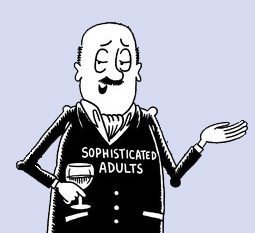How can you tell romantic and platonic love apart? What does it mean to fall in love with someone?
Platonic love isn’t Platonic it’s just revisionist Victorian Plato fanfiction
And what is romantic love?
Piss
I’m starting to think this is your answer to everything

Epucurean love wen?
All out sorry. All I’ve got left in stock is this off-brand Diogenean love (and today’s special, piss)
deleted by creator
When you can’t imagine someone out of your life
That’s one way
This is so simple and beautiful
Thanks
You actually linked to it.

(TL;DR: It’s a load of nonsense imo)
If you ask me, words for emotions are a trifling matter. There are so many words for “untranslatable emotions”, such as toská, Schadenfreude, or whatever, but we don’t actually need to have words for these concepts to understand what they refer to, right? They aren’t “untranslatable” so much as they just aren’t translatable in one word or three. That’s how these words ultimately end up in our vocabularies, anyways.
So having words for emotions can be helpful, but I don’t think it’s a prerequisite for having emotional literacy.
And this applies for romantic versus platonic love, too. In my experience, the main difference between these two emotions is honestly just a matter of… you know, social status. Being a really good friend to someone isn’t seen as this sacred thing, and it hence doesn’t have these associated rituals, right?
Platonic versus romantic love is a spectrum, and which end of the spectrum you’re actually on with someone honestly depends… well, mainly on what you yourself want to call your emotions. Most people still buy into this idea of romantic love being somehow sacred, though, and most people also just have less trouble with labeling their own emotions. This is why most people just don’t really like admitting how arbitrary it actually is to distinguish one form of love from another — so they make up any number of conflicting ad hoc definitions that only make things even more confusing.
So I say the best thing to do is to just focus on what’s immediately present in your emotions, instead of feeling the need to sort your emotions into neat little boxes, which weren’t created with people like you in mind. If someone is like a puzzle to you, where the aim is to make thon smile, then does it really matter if it’s platonic or romantic? It’s good in any case that you care about another person’s well-being. If someone is so cute that you can’t stop looking at thons hands, then does it matter if it’s platonic or romantic? If you aren’t being creepy about it, then it’s just flattering for that person. And so forth.
Eventually as your emotions grow and mature, you may or may not decide on a label for them that just “sounds right” for what you feel. If that label is “romantic love”, then people aren’t gonna go around policing what is or isn’t true romantic love just because you didn’t feel this particular emotion in this particular way, or didn’t do that particular ritual in that particular way. There are no checkboxes to fill in for something to actually count as romantic love. Rather, you call your emotion “romantic love” in order to “sanctify” that emotion, as it were, by evoking the particular and vague idea that is romantic love.
That’s how I feel, at least.
PS: this is why my favorite romance series is Love, Chunibyo and Other Delusions (yes, I am a weeaboo, sorry).
Thank you for taking the time, comrade.
So I say the best thing to do is to just focus on what’s immediately present in your emotions
The question is how do you act on these feelings, that is where the need to understand them come from. Do you wanna pursue something romantic with that person? What if you’re going out with someone and you wanna know where it’s heading, you wanna convey your feelings and “intentions”. It is not just about you, right? Idk how to put it
My point is essentially that you can atomize your desires, and that the label for the whole will sort itself out as you find the need to quickly describe the whole, with that person or others. So if you want to give someone chocolates, then give thon chocolates. If you want to share an umbrella with someone, then share an umbrella with thon. And so forth. You don’t really need labels just to act on your feelings, I don’t think.
And if the person then asks you if you’re in love with thon, then you don’t really need to have an absolutely certain answer, either. Absolute certainty is uncomfortable and rare, and uncertainty can communicate just as much, anyways.
So if the right word evades you, then talk around it, basically.
I’m broken or I’ve been surrounded by horrible people most of my life. I’ve only ever loved my cats.
to love someone is to push them to live
(to love a cop is to push them to kill themselves)
As I understand it: when you willingly place the well-being of a person on a level above your own and expend effort on their behalf to help ensure it. When you seek to know them both out of fascination and to better accommodate their needs. When you engage in cathexis, to devote mental and physical energy to them, to make their presence in your life a part of your identity in a healthy and mutual way.
I’m sure this all sounds rather clinical though
Beautifully put, comrade! I know this sounds like a very basic question but what is different between romantic and platonic love? Is it the sexual attraction?
Fun fact: they called it “Platonic” love specifically because Plato was like the one Greek philosopher who didn’t take advantage of and fuck his students. He took a volcel oath because he was too focused on philosophy, and trying to ignore that asshole Diogenes who kept cramping his style by being right about everything.
I think this is a myth honestly. Plato fucked his students, he just thought that close relationships where you didn’t have sex were the most ideal typw of relationship to have. https://learninglink.oup.com/access/content/gillis-jacobs2e-student-resources/gillis-jacobs2e-chapter-5-plato-and-same-sex-sexuality?previousFilter=all_resources
This passage is an unusual celebration of male same-sex desire by contemporary Western standards. Plato is explicitly linking manliness not with heterosexual desire but with homosexual desire.
what is different between romantic and platonic love? Is it the sexual attraction?
I would clearly say no to that. You can feel romantic love without sexual attraction and sexual attraction without romantic love, it’s just that this doesn’t work that way for everybody - allosexual people will almost always also sexually desire somebody they are romantically in love with, some demisexual people will not be able to be sexually attracted to somebody they do not also love romantically, but these experiences aren’t universal. Romantic, platonic and sexual attraction are seperate desires that can occur together, and they mostly do, it’s hard to find relationships built exclusively on one kind of attraction, but they will not always be present in the same amount and mixture in every relationship. There’s other types of attraction as well, such as sensual (the desire to be cuddly, tender and physically intimate with somebody), aesthetic (the admiration for the beauty of another person) or even intellectual (it’s a fairly central part of many of my relationships to have deep, mentally stimulating discussions and long mutual infodumps with these people, and i quickly grow bored off crushes that can’t establish that kind of connection with me) and more, depending on what you need to give and take emotionally. And there’s ofc relationships that combine all of those desires, just as there’s people who will find fulfillment of some of these desires with one person and fulfillment of other desires with another.
I’d say romantic desire is unique in that it involves a bond that aims to build a mutual future, a shared existence with somebody. To live our lives together, not temporarily like roommates or family members who will at some point part ways to some extend, but indefinitely.
Also what is revolutionary love?
Revolutionary love is the direct experience of the knowledge that a better world is not only possible, but that through our fellow human beings, a small part of it is already here, in our hearts, accessible to us.
Revolutionary love is the love that has the means to revolutionize its own premises. Everybody has their own way of identifying and defining and symbolizing love, but the only love that can truly create something new out of something else is one that is only beholden to the idea of changing itself.
I am revolutionary pissed
Guided by revolutionary piss
There is no difference. There is love with desire and lust, and sometimes that lasts. There is love with deep friendship. There is love that is inexplicable, despite flaws. And sometimes there is love with all of these.
It’s possibly my most idealist take, that, somehow, despite all reason, love is more than material affinity, brain chemistry, or temporary passion, but something platonic and divine and fundamental. And I’m honestly not sorry for having love as a terminal value, because with it, there is no choice but to be a socialist.
And I’m honestly not sorry for having love as a terminal value
You mean love for love’s sake, right?
Yeah, more or less.
 I love this answer
I love this answer
To be able to trust someone completely
Does “completely” include “won’t eat the rest of the snack you left in the fridge while you’re out?”

I only did that twice and you’ll never let me live it down, will you?
Maybe if you bought snacks for BOTH of us once in a while

If you’re sharing your lives together then you must also share your snacks
Yes, yeeeees. Sharing whatever’s unattended when you’re away.

I ate the peaches from the refrigerator. I know you were probbaly saving them. They were so good.
I’m convinced that love is dependent on material conditions insofar that it’s different for every relationship. For someone it could be a willingness to be a better person for someone else. For others it’s that you’re willing to die together (soon or far off). It could mean willing to die for them. Someone else it might be trusting them with your life without hesitation. It might be building a sanctuary with one another. It could mean always being willing to learn more about them.
I think defining it against a cultural norm is a fool’s game.
I don’t think there is a difference. Part of the reasons things get weird is that tradition has mixed things up and split them up in ways that are artificial but financially viable. It is a patriarchy thing.
The greeks they had four words egos, agape, fillia, and the one I always forget. But they are all terms to describe the social realities of caring for people more than the emotional ones.
Really the only thing that varies is the degree to which you feel the emotion. For reasons that must have felt sensible at the time it was decided lust must be a part of love. It doesn’t, and isn’t.
Also, I googled ot and they actually have eight types but it is hard to find a place that isn’t a mommy blog that talks about that so who knows. Embrace sexual anarchy
To care for them emotionally
Someone once told me that with platonic love you want to push that person out into the world in order to see them grow, whereas with romantic love you feel the opposite. A sort of willingness to let go vs an overwhelming desire to pull someone in and never ever let go.
I’m not sure if I completely agree with it but it was interesting enough to stick with me. I’ve forgotten the way they worded it though.
Romantic love is when you wanna have sex style sex with them.
And platonic love?
Apparently it’s also when you wanna have sex style sex with them.
Thanks to the ppl elsewhere itt reading all the boring books for me.
deleted by creator
Living in a constant pluralistic state of giving and receiving both romantic and platonic love sounds like something you’d say on research chemicals.
@Ideology@hexbear.net I remember your posts about love and I’d be interested in hearing any thoughts you have or reading any of your posts
Romantic love is given inflated importance within capitalism. Dating apps generate revenue and surveil users. Public dates put money in the local economy. Couples instilled with ideologies of jealousy separate from their community into little manipulable units rather than band together. Nuclear families fuel the labor pool without accruing power as large families once did in ages past.
That’s not to say romantic love is useless. Romantic love taught me to love in general. But I think if we view a person we love only in romantic terms, it reduces them to a single dimension. And for a lot of people that’s the ability to sate lust.
I personally don’t see romantic love as love, per se. I see it as a possible expression of love among the many other possible expressions of love. After all, many of the things we call romance are able to be removed entirely from love. Some people even sell those experiences for cash.
What makes romantic and sexual feelings special is expressing them with someone one considers a friend or even family (in the sense of coming together to form family, not blood relatives). It’s an added layer on top of a platonic relationship. And in that line of thought, things like aromantic and asexual identities start to make more sense. They don’t need romance or sex to feel love, so why do alloromantic and allosexual people need those things to feel love? Do allo people not feel love for parents or siblings? What’s actually happening here is that allo people have expressions of love reserved for people who fit certain criteria within their communities. That doesn’t make the love of family or community any less valid or valuable, it just makes them different.
Based on my influence from certain authors and my lived experience: love is the will to exist within a community. It gives you the tools to grow, adapt, and be with people who also want to grow with you to adapt to the material conditions of the world.
Is it love to fuck a body? And then be devastated when the owner of that body decides to change its gender? I don’t think so.
Is it love to lock an adult child out of opportunities so that they remain psychologically youthful and dependent? I don’t think so.
Is it love to donate to a church out of guilt?
Is it love to fight an imperialist war for your country?
When we think of love in terms of things which capital uses to maintain itself, we end up feeling broken and alienated, even if we’re succeeding at times.
Rather, I think we can think of love as…
a friend who’s there for you even when you’re inconvenient.
a parent who helps a trans child be their best possible self.
a neighborhood that shares food and emergency supplies when disaster strikes, and a neighborhood that shares food and resources when there’s no disaster.
a surveilled food worker sneaking something out to a homeless person on-the-clock.
a lover who pieces together the broken self-esteem of their partner(s).
a worker striking because a friend was injured on the clock.
a socialist org that plants trees under whose shade it will never sit.
Love is the things that capital can’t touch. It’s the parts of living with others that oppose alienation. It’s being immersed in humanity without a price tag.
















